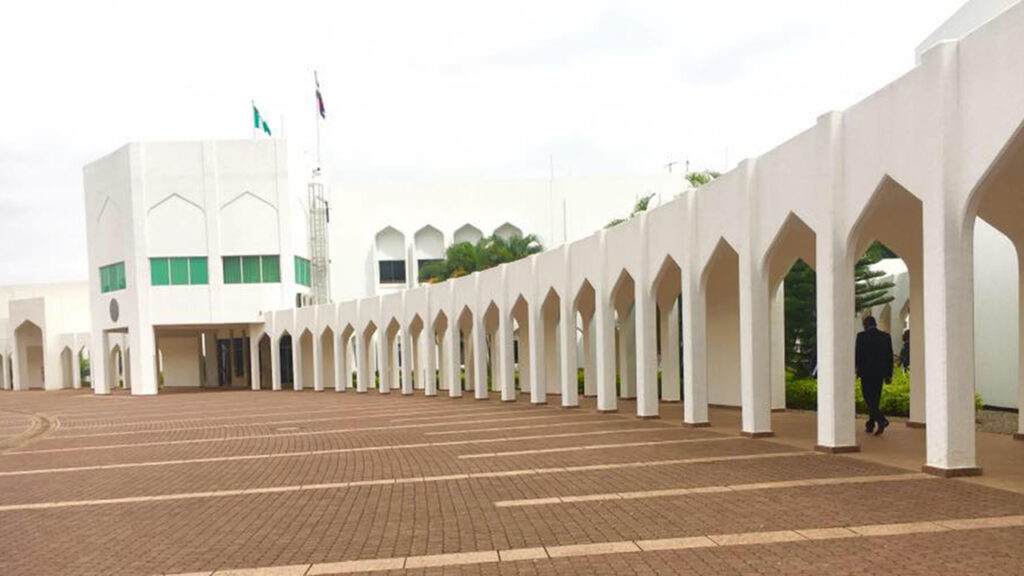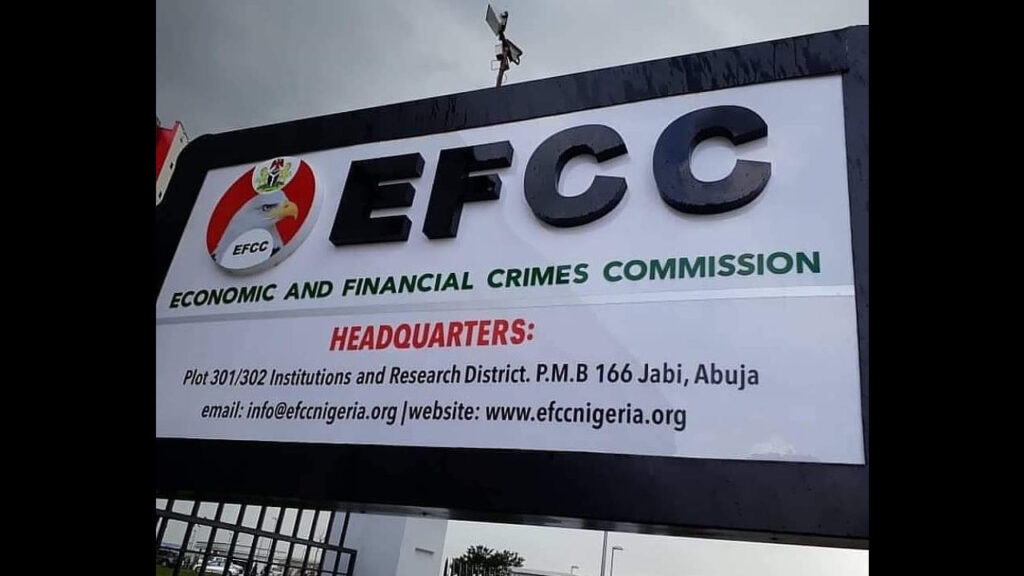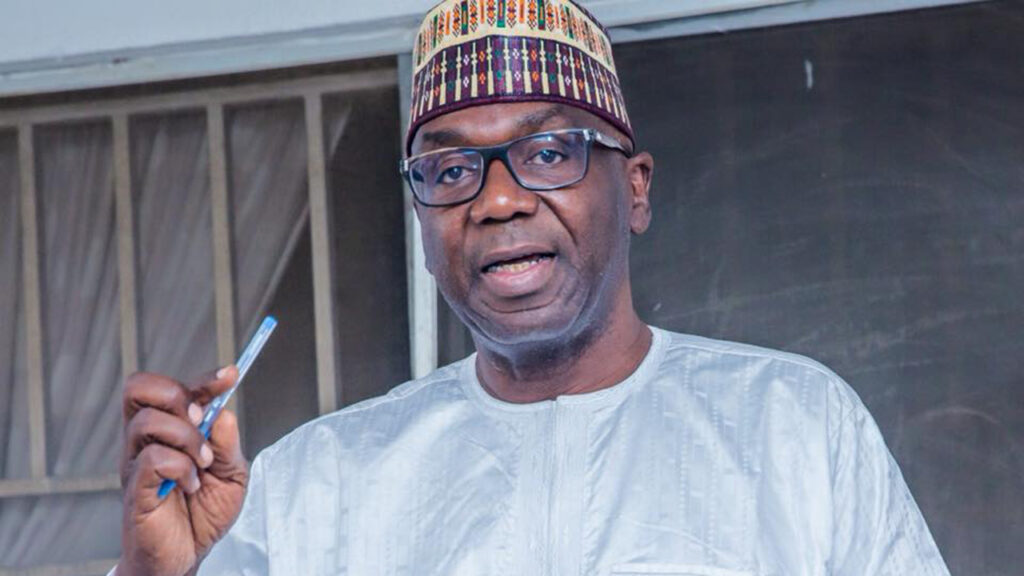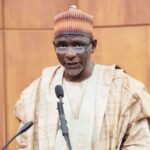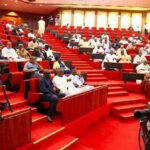
• Number Of MDAs Now 943 From 541 In 2012
• National Assembly Must Amend Laws Establishing Agencies, Say Olajuyigbe, Others
• Twelve Weeks Deadline A Joke – Koripamo-Agary
There are indications that the proposed implementation of the report of the Presidential Committee on Restructuring and Rationalisation of Federal Government Parastatals, Commissions and Agencies may not be achieved within the 12 weeks deadline announced by the Federal Executive Council (FEC).
This is even as many stakeholders have expressed doubts about the resolve of the President Bola Ahmed Tinubu administration to implement the report given that the National Assembly has created more agencies and commissions while the report gathered dust on the shelf.
Meanwhile, the uneasy calm within the civil service in Abuja over looming job losses since the administration announced its intention to implement the report has continued.
The presidential committee, which was headed by a former Head of the Civil Service of the Federation, Steve Oronsaye, was commissioned by the President Goodluck Jonathan administration in 2011. Its report, now popularly known as the Oronsaye Report, was a government white paper that sought to streamline and restructure the Nigerian civil service for greater efficiency and cost-effectiveness.
The report called for a focus on improving service delivery within the civil service through the adoption of performance-based management practices, training and capacity building for staff and the use of technology to enhance efficiency.
It proposed the harmonisation of salaries and allowances across different government agencies to ensure equity and reduce the wage bill. This was intended to make the civil service more cost-effective and sustainable.
The report proposed the merger and consolidation of government agencies and parastatals that had overlapping functions. This was intended to reduce duplication of roles, improve efficiency and cut down on government spending.
According to the report, stricter financial management practices within government agencies should be implemented to reduce wastage, corruption and mismanagement of public funds. The committee also recommended that 14 of the agencies revert to departments in ministries.
Indeed, the Oronsaye Report established that there were 541 parastatals, commissions and agencies (statutory and non-statutory) and recommended that 263 of the statutory agencies should be reduced to 161, while 38 agencies should be abolished and 52 merged.
It also recommended a reduction in the number of civil servants through the elimination of redundant positions and the restructuring of job roles.
Key recommendations of the report included rationalisation of government agencies, staff rationalisation, salary harmonisation, improved financial management and enhanced service delivery.
The committee was inaugurated in August 2011 but the report was submitted on April 16, 2012. In May 2014, a White Paper on the report was submitted. The government also inaugurated a white paper implementation committee in the same month. In March 2016, a reconstitution of the implementation committee was carried out. Again, in September 2019, former President Muhammadu Buhari directed the review of the report for implementation.
In April 2020, the same Buhari directed the implementation of the report and in November 2021, the Federal Government set up two committees to review the report and its White Paper and review Ministries Departments and Agencies (MDAs) created between 2012 and 2021. Then in August 2022, a draft White Paper to review MDAs created between 2012 and 2021 was submitted.
Now, in February 2024, the Federal Executive Council (FEC) approved the implementation of the 12 years old report. However, while the back and forth movements on the report were going on, more agencies, commissions and parastatals were created by the National Assembly.
Findings showed that today, the Federal Government has over 900 MDAs recklessly created by the National Assembly.
The Director-General, Budget Office of the Federation, Mr. Ben Akabueze, had at a policy dialogue in 2021 titled, ‘Corruption and Cost of Governance in Nigeria’, organised by the Independent Corrupt Practices and Other Related Offences Commission (ICPC), declared that the 943 MDAs and 541 corporations owned by the Federal Government had become a drag on the economy.
Speaking on the planned implementation of the Oronsaye report by the Tinubu administration, the Executive Director, Emergency and Risk Alert, Gbenro Olajuyigbe, noted that addressing emerging dynamics is beyond mere implementation of the Oronsaye report.
He noted that the Oronsaye report has lingered for 12 years with half-hearted commitments to its implementation by the government that initiated it and the Buhari administration that inherited it.
Olajuyigbe said: “Both set up panels for its implementation and both were not genuinely committed. So, their failures are testaments to the colour of deception and propaganda that shape policy and governance in Nigeria.” He stated that President Tinubu is neither saying new things nor taking new steps that had not been taken before.
“Twelve years after the Oronsaye report, Nigeria’s survival needs more than the implementation of the report. She needs a more comprehensive inclusive strategic restructuring plan and action that can address the fundamental objectives of our federal structure,” he noted.
He added that reducing the cost of governance, which the implementation of the Orosanye report may contribute to, is an infinitesimal portion of what is wrong with Nigeria today.
Olajuyigbe added: “Nigeria has fundamental challenges that are characteristically existential – ethnic rivalry and the challenge of unity, the challenge of exclusionary governance and access to equal opportunities, vertical and horizontal inequalities as well as unjust structures that have become vital forces behind unending violence and pervasive repressive economic and social injustices that are ubiquitous.
“Tinubu, who went ahead to constitute a cabinet of 48 members against all logic of cost-benefit in a collapsing economy, needed a face saving tree to hang on. Hence, Orosanye report became handy in placating people mounting pressure against the opulent hedonistic epicurean style of his governance.
“Poverty in the midst of plenty has become the paradox of the oil producing and exporting state of Nigeria. There is no oil producing nation among OPEC members that is going through the type of cruel economic challenges that Nigeria is going through. It has been boom, boom for oil producing countries in the last seven years.
“Astonishingly, poor leadership that surrendered to importation of what we produce and should refine for local consumption and even for exportation has wrecked our economy and diminished our country.
“There must be serious discussions on the type of government we want to run. We should be talking of scrapping the Senate in our goal of having a unicameral legislature, moving away from the bicameralism that has become a pest on our economy. Tinubu should be talking of having not more than 15 cabinet members. America has 15 cabinet members, including the vice president.
“Doing this is what I see as bold decisions not cosmetic cleaning up of a 12-year-old report that may no longer be able to address the current national challenges, emerging dynamics and unfolding issues and concerns.
“To understand why Nigeria has become what she is today, the President must go beyond the Orosanye report. We have a country that is being rejected by its citizens; a country that is being milked by reckless rulers who have the misfortune of being in power; a country that has not evolved an ethical culture that can contribute to building a sustainable national community that is rooted in justice, equity and fair play. The Oronsaye report cannot deliver this, even though it can offer momentary refuge to a government that prefers political expediency to building a national community of people.”
On his part the Executive Director, Civil Society Legislative Advocacy Centre (CISLAC), Auwal Musa Rafsanjani, said the approval by President Tinubu for the full implementation of the Orasanye report is a welcome development, especially at this critical moment in the country.
He added: “While we welcome and appreciate the approval by the President for the implementation of the report, which will significantly reduce the cost of governance and harmonise the working of the government agencies, we are greatly concerned that he is taking these bold steps in a hasty manner without due consultation with the members of the National Assembly on the manner in which these agencies should be merged or scrapped.
“It is clear that some of these agencies were constitutional creation and some were of the National Assembly through a rigorous legislative debate, which established the agencies thereby providing adequate constitutional and legislative backing in the form of laws made by the National Assembly.
“It is therefore fitting and more democratic for the president to follow the same procedure for the establishment of the agencies when merging or scrapping these agencies. This will provide more credibility to our constitutional democracy as due process is followed before any actual decision is taken by the President.”
Rafsanjani called on the President to work closely with the National Assembly in order to harmonise the agencies with the full backing of the laws of the land.
He noted: “The emphasis for the President to work with the National Assembly is of great national significance as actions such as these require constitutional and legislative amendment which will establish legitimacy to the process and give room for due process and the rule of law as enshrined in our constitution to be adequately adhered to.
“The two months given by the President to fully implement the report does not provide an avenue for any legislative engagement and debates thereby establishing laws that will back the merging of the agencies through constitutional amendment.
“We call on the President to always take decisions according to the provisions of the rule of law and the constitution of the Federal Republic of Nigeria. We notice that the President in many instances takes decisions without due consultation with the National Assembly, which has serious democratic and governance ramifications.
“The National Assembly can make laws for the establishment and merging of agencies such as the EFCC, ICPC, FIRS and other agencies that require constitutional amendment; and the National Assembly cannot merge these agencies without harmonising the laws that established them.
“We urge the President to consider the legal and political consequences of taking such bold steps without due consultation with the body that constitute laws backing the establishment of agencies without constitutional amendment.”
Similarly, Social Mobilisation Manager, Action Aid Nigeria, Adewale Adeduntan, said that Tinubu’s creation of new ministries raises questions about whether he considered the Oronsaye report before appointing over 45 ministers.
“Nonetheless, if he has the real interest and willpower to implement the directive to the letter, it will drastically reduce the cost of governance. No matter how far a leader and people might have gone in the wrong direction, there is always a turn-point.
“This is the crossroad Nigeria has found itself and the Federal Government must be purposeful about the full implementation of the Oronsaye report because the era of profligacy is gone,” he said.
On the argument by some Nigerians that the President is playing to the gallery for not sending a bill to the National Assembly to amend the laws establishing the agencies, Adeduntan said: “Unfortunately, our leaders have put Nigerians in a state where they are not trusted anymore. You will recall that former President Muhammadu Buhari also made a similar pronouncement in June 2020, and it never saw the light of the day.”
He observed that backing the executive declaration up with a bill to the National Assembly would have made a significant difference in this case.
Adeduntan also believes that addressing bureaucracy in the Presidency also requires comprehensive reforms with focus on streamlining processes, enhancing efficiency and fostering transparency through digital transformation that provides digital solutions and e-governance platforms to automate processes, reduce paperwork and facilitate faster decision-making.
He noted that this would lead to merit-based appointment or recruitment; performance management, capacity building, decentralisation – devolving power and decision-making authority to lower levels of government and agencies to reduce bottlenecks and improve responsiveness to local needs; stakeholders’ engagement, as well as regulatory reforms nurtured by strictly by transparency and accountability.
“This also requires strengthening the Presidency’s resolve to hold public officials accountable for their actions and promote integrity in governance,” he added.
In implementing the report, agencies whose functions are similar are destined to be merged. The Economic and Financial Crimes Commission (EFCC), the Independent Corrupt Practices and Other Related Offences Commission (ICPC) and the Code of Conduct Bureau (CCB) fall into this category.
Following in that pattern are the Federal Radio Corporation of Nigeria (FRCN), the Voice of Nigeria (VON) and the Nigerian Television Authority (NTA).
A very tricky one is the merger of the Nigerian Communications Commission (NCC) and the National Broadcasting Commission (NBC) because both belong to different areas of focus completely. While the NCC is responsible for developing the guidelines for the telecommunication sector, the NBC regulates the broadcasting industry.
Those that may face the Golgotha, but may resurrect as departments or units in relevant ministries, are the Fiscal Responsibility Commission (FRC), the National Board for Technical Education, the National Commission for Colleges of Education, the Federal Character Commission, the Gurara Water Management Authority (GWMA), the Nigeria Integrated Water Resources Management Commission (NIWRMC), the National Inland Waterways Authority (NIWA), the Commercial Law Department and Centre for Automotive Design and Development (CADD).
Director, Obsidian Archenar, Kelvin Emmanuel, told The Guardian that he does not believe that a piecemeal approach would deliver the desired result.
According to him, the government should commission another committee to review new MDAs that were created recently, adding: “The government needs to commission a new committee to produce a White Paper review given the new addition of MDAs post-2023, and implement the recommendations of the committee in entirety if it is going to feel the impact of the cost reduction expected on the recurrent expenditure.”
On its part, the Association of Senior Civil Servants of Nigeria (ASCSN) lauded the implementation of the report, which is coming 12 years after it was submitted.
President of the association, Dr. Tommy Okon, said the Oronsaye report is a meticulous pathway to reducing the cost of governance. Okon said the union would not engage in needless criticism of the implementation, saying: “Being in a union does not warrant blind and thoughtless criticism. Whenever the government takes the right decision, we should agree and if necessary, suggest even better ideas to move the nation forward.”
While agreeing with the imperativeness of the report within the context of the Nigerian situation economically at this time, Okon urged the Federal Government to operate within the laws that established the affected agencies.
The Guardian learnt that the civil service nowadays has become amoebic as no one is sure of what is what anymore. It was gathered that before now, chief executives of parastatals used to be equal to directors in the federal ministries but that has changed. Currently, chief executives are on the same level as Permanent Secretaries. The confusion lies in the fact that directors still supervise chief executives of parastatals.
To throw more confusion into the mix is the creation of more ministries and more ministers by the current administration. A former Permanent Secretary in the Ministry of Labour, Dr. Timiebi Koripamo-Agary, observed that if not properly handled, the implementation of the report could create more confusion in the system.
She said: “If the government wants to rationalise the service, labour and government need to sit down and negotiate the timelines. This cannot be done with the wave of the hand. Twelve weeks to resolve all these? That must be a joke taken too far.”
She said she was not sure if the implementation would not affect jobs, saying, “how would you do a merger of departments and agencies and jobs would not be on the line?”She urged the government to set up a tripartite committee to proffer solutions to many issues that would arise in the implementation processes and stages.

